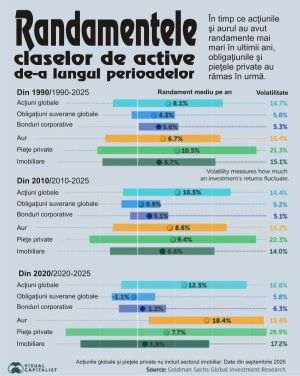• A company in the Dobruja region is looking to turn its experimental kiwi garden into a business and sell fruit, juice and canned fruit on the domestic market
• Whereas the more traditional crops were decimated by rain, kiwi crops are resilient and require no phytosanitary treatment
An increasing number of agricultural producers are beginning to grow exotic crops as experiments, due to the climate warning of these last few years.
Some of them are seriously considering growing exotic crops for commercial purposes, and are expecting to turn out a profit over the medium and long term by creating processing facilities that would produce juice and canned products.
One such example is SC "Ostrovit" SA, a company that since 1995, has set up an experimental kiwi plantation in the region of Dobruja. The company has a cultivated surface of two hectares which so far has yielded 2 tons a hectare.
"If we were to invest more in the future, we could produce enough fruit to sell on the domestic market, and, why not, even kiwi to be processed and turned into juice and other processes, in order to achieve juices and other preserves", said Lucian Stoian, an engineer with the company. Lucian Stoian said that so far, the company has not begun selling kiwi on the domestic market.
• Future plans: juice and canned fruit
Engineer Lucian Stoian said that "Ostrovit" SA is looking to expand its area which grows kiwi and to optimize its output: "At a normal density, a hectare of kiwi can yield up to 12 tons of fruit".
Stoian says that one advantage of these crops is the fact that kiwi crops are easy to manage, and have low production costs. "The crops are resistant to rain and require no phytosanitary treatment", the engineer added.
The more traditional crops were affected by the heavy rains which occurred this summer, while pests could lower their yield even further this year.
• Cold, the greatest threat
However, the greatest threat for exotic crops is the winter cold. "The issues that we are facing stem from climate conditions, in particular due to the very low temperatures of winter, which can go as low as -25°Celsius", said Mr. Stoian.
It is precisely for this reason that many plants couldn"t adapt, and the output is rather low, of just 2 tons, compared to the normal yield of 12 tons per hectare: "The output per hectare is 2 tons, because crop density has suffered due to the climate, which caused many plants to die. New plants were sown to fill in the gaps, but they have not yet reached maturity".
• Experiments go back to 1993
The kiwi crop of "Ostrovit" was set up as an experiment by the teachers of the fruit farming of the Horticulture Faculty of the University of Agronomic Sciences and Veterinary Medicine of Bucharest (USAMVB).
Besides, the faculty of Horticulture pioneered this kind of crops, setting up a collection of several types of kiwi and a selection field with over 1,000 kiwi cold-resistant kiwi hybrids (Actinidia arguta).
Ph. D.. Florin Stanca, of the USAMVB, said that so far, the faculty has so far received several consulting requests from various farmers, mostly from small plantations at an amateur level.
Florin Stanca says that setting up a crop is relatively quick and that the crops can turn productive within three or four years.
• Areas which are fit for exotic crops (kiwi, dates, bananas)
Officials from the Ministry of Agriculture said that some exotic crops can be acclimated in Romania, predominantly in the southern area, in the regions of Banat and Dobruja.
Ph. D Florin Stanca, of the USAMVB, said that areas where peaches are grown are easily suitable for kiwi species "Actinidia deliciosa" and "Actinidia chinensis" (which have green and yellow flesh, respectively), Chinese dates (Ziziphus jujuba) and kiwi (Diospyros kaki).
Florin Stanca said that other fruit farming areas are suitable for crops of frost-resistant kiwi (Actinidia arguta) and "northern bananas" (Asimina triloba).









































